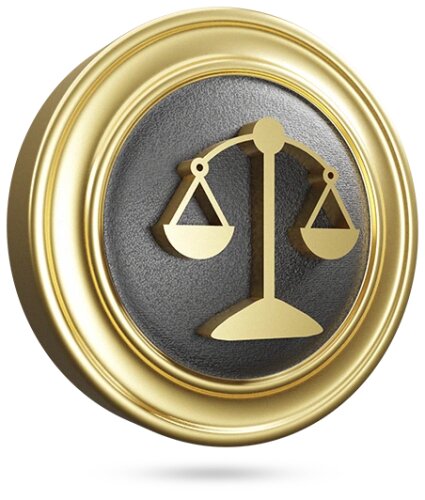Best Job Discrimination Lawyers in Itajaí
Share your needs with us, get contacted by law firms.
Free. Takes 2 min.
List of the best lawyers in Itajaí, Brazil
About Job Discrimination Law in Itajaí, Brazil
Job discrimination occurs when a person is treated unfairly or unequally at work based on characteristics such as race, gender, age, religion, disability, sexual orientation, or other factors protected by law. In Itajaí, just like in the rest of Brazil, job discrimination is prohibited by federal and local laws. The legal framework aims to guarantee equality and protect workers’ rights, ensuring that workplaces remain fair and inclusive. Employers are not allowed to make hiring, firing, promotion, salary, or training decisions based on discriminatory criteria. Victims of job discrimination have the right to seek compensation and corrective action through legal channels.
Why You May Need a Lawyer
Experiencing discrimination at work is not only frustrating but can also have significant legal and financial consequences. It is important to consult with a qualified lawyer in certain situations, such as:
- Being denied a job, promotion, or fair salary due to personal characteristics protected by law
- Facing harassment or offensive comments at work related to race, gender, religion, or other protected factors
- Experiencing unfair dismissal or penalties for discriminatory reasons
- Retaliation after reporting or complaining about workplace discrimination
- Needing help to gather evidence, file complaints, or negotiate settlements with employers
- Wanting to understand your legal rights and options before taking action
- Dealing with complex or ongoing discrimination that affects your health or career
A lawyer can help navigate the legal process, assess your case, and protect your rights throughout any legal action or negotiation.
Local Laws Overview
Job discrimination in Itajaí is primarily governed by Brazilian federal laws, especially the Consolidação das Leis do Trabalho (CLT) and the Brazilian Constitution. Key provisions include:
- Article 5 of the Constitution guarantees equality before the law and forbids discrimination based on origin, race, gender, color, age, or any other form.
- The CLT specifically prohibits discriminatory practices in hiring, salary, promotion, and dismissal.
- Law No. 9.029/1995 bans requirement of pregnancy tests and sterilization for hiring or continued employment.
- Laws protect against sexual harassment in the workplace.
- Employers must ensure reasonable accommodations for people with disabilities under Law No. 8.213/1991.
- Specific local regulations or ordinances in Itajaí may enhance protections, but generally follow federal guidelines.
Victims can report discrimination to the Ministério Público do Trabalho (Labor Prosecutor’s Office) or local labor authorities and may file claims in the local labor courts (Justiça do Trabalho) of Itajaí.
Frequently Asked Questions
What qualifies as job discrimination in Itajaí?
Job discrimination occurs when an employee or job seeker faces unfair treatment based on race, gender, age, religion, disability, sexual orientation, or other protected attributes. This can include hiring, firing, promotion, pay, or working conditions.
How can I prove job discrimination?
You should collect any evidence that shows unfair treatment, such as emails, messages, witness statements, company policies, or a record of incidents. The more specific and detailed your records, the stronger your case will be in court.
Can I be fired for complaining about discrimination?
No, retaliation against employees for reporting discrimination is illegal. If you are dismissed or penalized for making a complaint, this can be the basis of an additional legal claim.
Do I need to file an internal complaint before going to court?
While it is not always legally required, it is often a good idea to use the company's internal processes first. This demonstrates that you tried to resolve the situation internally. However, if internal processes are not effective or available, you can still file with external authorities or the labor courts.
How long do I have to file a discrimination claim?
Generally, labor claims, including those for discrimination, must be filed within two years from the end of the employment relationship. However, it is best to act as soon as possible to preserve evidence and strengthen your case.
What compensation can I receive if I win a discrimination case?
Possible outcomes include reinstatement to your job, payment for lost wages, compensation for moral or emotional damages, and sometimes penalties against the employer. The exact compensation depends on the specifics of your case.
Does the law protect against harassment as well?
Yes. Both moral and sexual harassment are prohibited in the workplace. Victims can seek protection and compensation through legal channels.
Are job advertisements allowed to specify gender, age, or appearance?
No. Job announcements specifying preferences for gender, age, race, or appearance are considered discriminatory and are generally prohibited by law.
Can people with disabilities request workplace adjustments?
Yes. Laws require employers to provide reasonable accommodations so that people with disabilities can do their jobs safely and effectively.
Where can I file a complaint about job discrimination in Itajaí?
Complaints can be filed with the Ministério Público do Trabalho, the local labor unions, or directly in the labor courts (Justiça do Trabalho). In some cases, city or state human rights commissions can also assist.
Additional Resources
- Ministério Público do Trabalho (MPT): The federal agency responsible for enforcing labor laws and investigating discrimination complaints.
- Sindicato dos Trabalhadores: Local labor unions can provide support, legal advice, and can help with collective complaints.
- Defensoria Pública: The Public Defender's Office offers free legal assistance to those who cannot afford a private lawyer.
- Justiça do Trabalho: The labor courts handle legal actions related to job discrimination.
- Prefeitura de Itajaí: The city hall may have additional resources or social assistance programs related to workplace rights.
Next Steps
If you believe you have experienced job discrimination in Itajaí, here are steps you should consider:
- Document all incidents, including dates, names, and details of what happened.
- Preserve any written evidence such as emails, text messages, or official communications.
- Report the discrimination to your employer or human resources department if you feel safe doing so.
- Contact a local labor union or the Defensoria Pública for guidance and support.
- Consult with a labor lawyer who has experience with discrimination cases in Itajaí.
- Prepare to file a formal complaint with the Ministério Público do Trabalho or local labor courts if necessary.
Taking early action and seeking professional legal advice can increase your chances of a positive outcome and help protect your rights in the workplace.
Lawzana helps you find the best lawyers and law firms in Itajaí through a curated and pre-screened list of qualified legal professionals. Our platform offers rankings and detailed profiles of attorneys and law firms, allowing you to compare based on practice areas, including Job Discrimination, experience, and client feedback.
Each profile includes a description of the firm's areas of practice, client reviews, team members and partners, year of establishment, spoken languages, office locations, contact information, social media presence, and any published articles or resources. Most firms on our platform speak English and are experienced in both local and international legal matters.
Get a quote from top-rated law firms in Itajaí, Brazil — quickly, securely, and without unnecessary hassle.
Disclaimer:
The information provided on this page is for general informational purposes only and does not constitute legal advice. While we strive to ensure the accuracy and relevance of the content, legal information may change over time, and interpretations of the law can vary. You should always consult with a qualified legal professional for advice specific to your situation.
We disclaim all liability for actions taken or not taken based on the content of this page. If you believe any information is incorrect or outdated, please contact us, and we will review and update it where appropriate.












